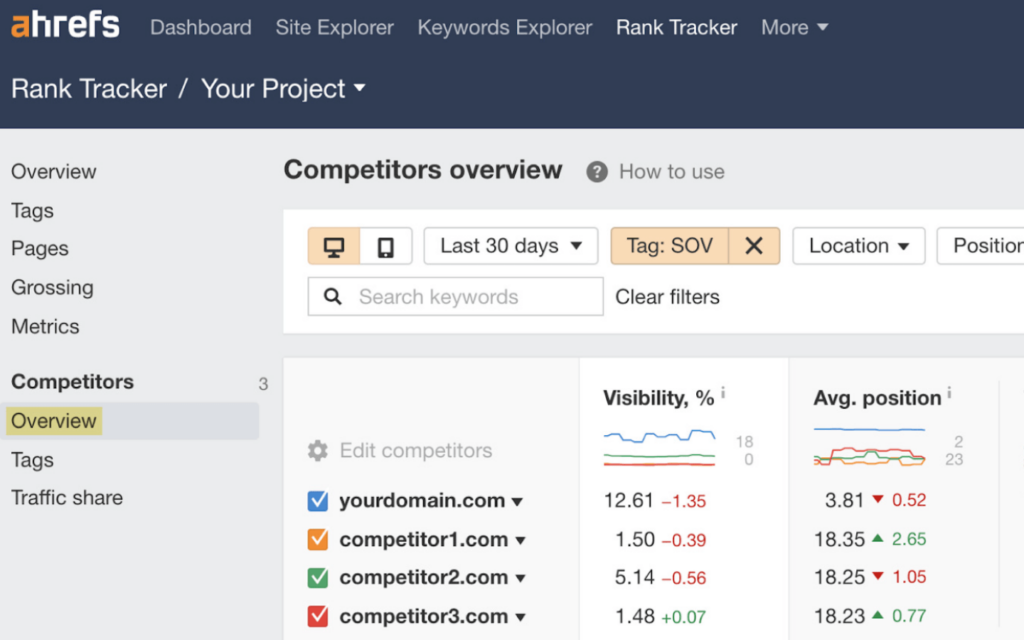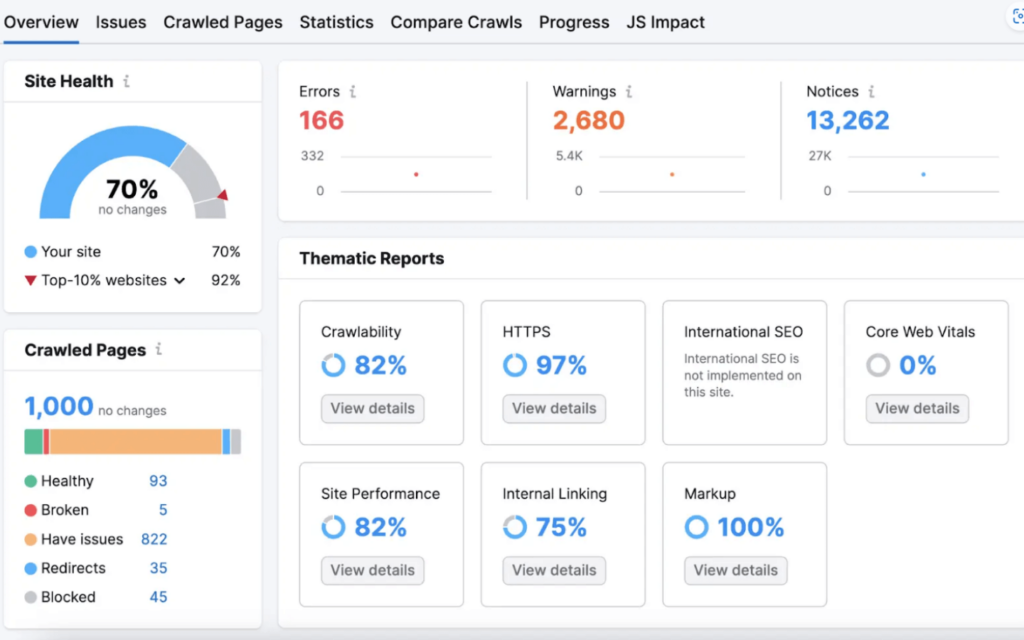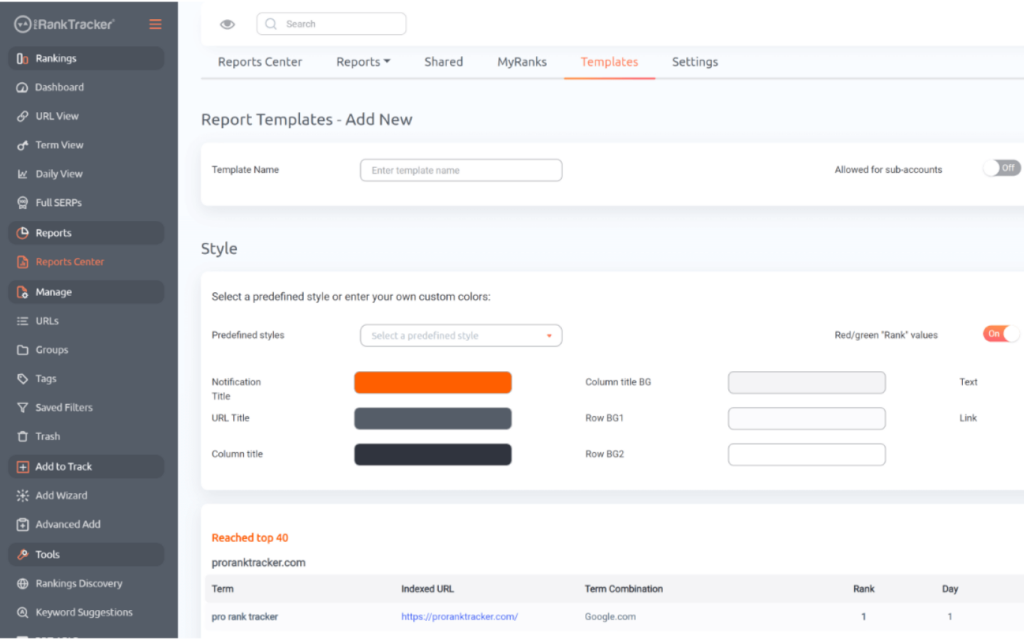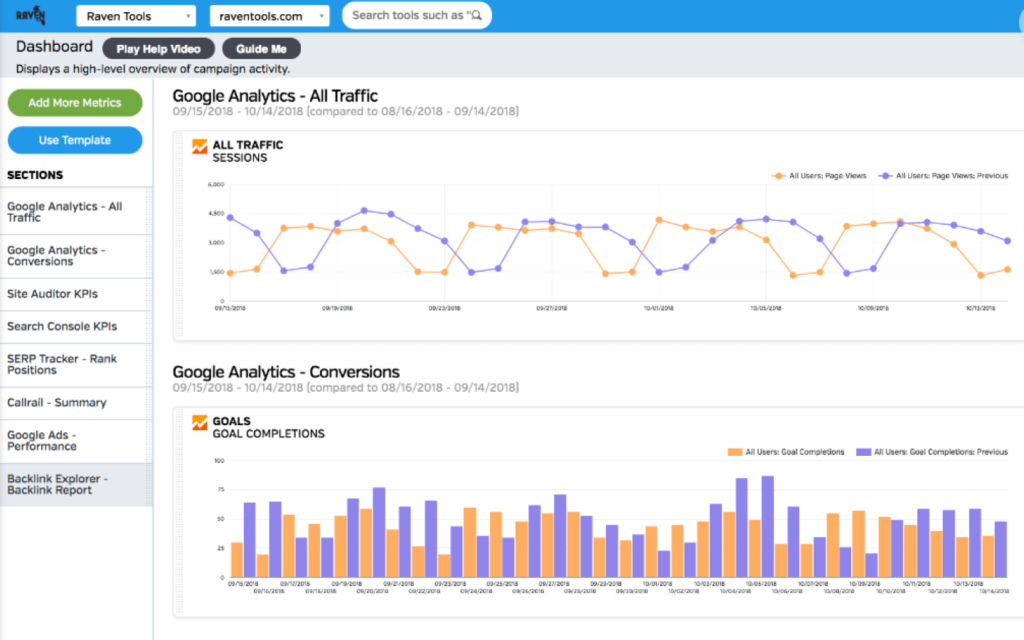Table of Contents
What if you could leverage a simple reporting strategy to double your website’s organic traffic and simultaneously cut marketing costs by 34% over the next year?
A well-structured keyword research report makes this scenario an attainable reality. Studies by Moz show businesses who optimize content for targeted search terms lift organic visibility by an average of 126% annually. Meanwhile, creating informed buyer journeys via these reports reduces client acquisition budgets by over a third according to Consulting.com.
This transformational potential remains locked for many sites though. Despite 78% of marketers valuing keyword reports (SurveyMonkey), only 16% have mastered maximizing theirs to drive business growth.
Yet crafting an insightful report doesn’t need to be overwhelming. This guide will walk through pragmatic steps for compiling keyword intelligence into an actionable SEO blueprint. You’ll learn techniques to identify high-potential keywords to own while tracking competitor sites dominating your targets. Start planning keyword-led content that takes your organic presence to new heights this coming year.

Unlock Your Website’s Organic Traffic Potential with Keyword Reports
Keyword research reports unlock the secrets to skyrocketing your organic search traffic. According to Moz, domains ranking on the first Google search results page drive over 95% of all traffic. By analyzing the exact terms your customers are searching, these reports provide a blueprint for ranking higher and further optimizing your on-page content.
Industry surveys reveal 78% of marketers say keyword research guides their overall SEO strategy.
Crafting a structured keyword research report sheds light on the topics and questions your audience cares about most. Studies show that content tailored to keyword search intent receives over 3 times more organic traffic on average. With this understanding, you can shape search-friendly content that captures qualified organic traffic.
Reports also equip you to track competitors, monitor trends, and set data-backed SEO strategy. As Bruce Clay, Founder of Bruce Clay Inc. puts it, “By analyzing the terms ranking competitors are already capturing, keyword reports contain a blueprint for gaining ground in the SERPs.” Let’s get into how to make the most of this key component of marketing.
Based on recent reviews and comparisons, here are four top-rated keyword reporting software options:
Ahrefs: This tool is highly regarded for its comprehensive SEO and marketing capabilities, including tracking search engine rankings, website audits, keyword research, backlink analysis, and more. It’s particularly favored by experienced SEO specialists for its detailed dashboard and rich feature set. It does have some limitations on tracking unverified domains and lacks a free plan option.

SEMrush: This all-in-one web-based solution, mainly designed for large-scale businesses and SEOs. It provides a broad range of features including rank tracking, link building opportunities, local SEO, competitor SEO analysis, PPC keyword research, and on-page SEO ideas. It’s noted for its ability to track search engine rankings across multiple countries and languages, although it is considered costly and possibly overwhelming for beginners.

Pro Rank Tracker: This tool is geared towards accurate keyword tracking in the SERPs, offering detailed graphs and comprehensive team reporting options. Users appreciate its instant search engine discovery and support for managing multiple client properties. However, it does not offer automated visual email reports and has some limitations in setting client reporting for specific keywords.

Raven Tools: Ideal for marketing agencies, Raven Tools offers extensive features for search engine data analysis, including the ability to fully white-label reports. It supports competitor analysis, web analytics, and monitoring marketing campaigns. While it’s suitable for creating comprehensive reports, it may lack some detailed insights into organic search traffic and can be challenging to create custom reports initially.

Each of these tools has its unique strengths and potential limitations, so it’s important to choose one that aligns best with your specific needs and budget.
Defining Keyword Research Reports and Their Value

What is a Keyword Research Report?
More than just a list of keywords, a robust report analyzes important metrics around search volume, difficulty, trends over time, and competitor rankings for each term. Make the most of your keyword search report by engaging in essential SEO performance indicators:
- Search visibility
- Assisted conversions
- Goal completions
- Click-through-rates
Structured well, these reports synthesize key datapoints into actionable insights.
Why are Reports Valuable for Digital Marketing?
Keyword reports synthesize invaluable intelligence to outmaneuver competitors and own organic search real estate, namely:
🔎 Identifying Your Audiences’ Most Burning Questions
By compiling the exact terms customers use when researching online, reports unveil pressing knowledge gaps around products, industries etc. This intelligence informs content that pulls qualified traffic.
📊 Reverse Engineering What Leaders Are Getting Right
Analyzing pages consistently ranking ahead uncovers winning optimization strategies to model. Reports trace how rivals structure sites and employ keywords so you can replicate success.
🔮 Predicting Emerging Opportunities Early
With historical metrics and machine learning forecasts, spot rising queries before competitors capitalize. Preempt trends rather than remain reactionary.
🎯 Optimizing to Align with Searcher Intent
Group keywords by the type of intent driving them – informational, navigational or transactional. Then enhance pages to satisfy each search goal, lifting conversions higher.
Elements of an Effective SEO Keyword Analysis Report
What should you include when structuring an actionable SEO keyword report? While formats can vary, robust reports share several core elements:
1. Relevant Keywords and Search Volume
An effective keyword analysis begins with a comprehensive list of relevant keywords and corresponding average monthly search volume. Rather than just brainstormed ideas, leverage tools like Google’s Keyword Planner or Ahrefs to source the most accurate and up-to-date search data.
Grouping keywords into categories around offerings also provides better structure to apply insights. Tracking search volume helps gauge interest and prioritize higher potential terms informed by actual searcher behavior.
2. Keyword Difficulty and Competitiveness
Assigned keyword difficulty scores quickly convey how competitive ranking may be for a given term when paired with search volume data. Rely on solutions like Ahrefs and SEMrush that incorporate page authority metrics for calculating these useful scores.
Understanding existing page rankings also provides critical context. If a competitor already ranks well for a coveted keyword, dig into why with the right tools. Analyze winning content strategies you can replicate.
3. Searcher Intent Analysis
Effective keyword grouping must also incorporate grouping by searcher intent – whether that involves researching, navigating or an enabling action. Categorize keywords accordingly so content better answers user needs. Tools like ÜberSuggest make categorizing keywords by search intent highly efficient. Its automated classification functionality tags queries as informational, navigational or transactional. Sign up for a free ÜberSuggest account to group your keywords and identify optimization opportunities accordingly. Matching pages to each intent type lifts conversion potential.

Step-by-Step Guide to Building Your Keyword Research Report
Creating an insightful SEO keyword report requires methodically compiling and analyzing data. Follow these best practice steps:
A. Research Potential Keywords
Begin brainstorming an initial list of keyword ideas aligned to your business using tools like Google’s Keyword Planner. Leverage both singular seed keywords and longer phrases. Supplement with related keywords from tools or Google’s “People also ask” section.
B. Analyze Metrics and Search Intent
Record average monthly search volumes for each keyword to gauge interest levels. Then use Keyword Difficulty checkers to assess competitiveness. Lastly, manually categorize keywords by the type of intent driving each query – informational, navigational, transactional.
C. Uncover Goldmines with Competitor Tracking
For your most sought-after keywords, analyze competitor content ranking highly. Note topics, formats, backlink profiles and any other signals they are leveraging to outperform you. Identify 2-3 top competitors to continually monitor over time.
D. Set Targets and Document the Report
Compile all your organized research and metrics into a centralized keyword report spreadsheet, noting target goals for rankings improvements. Update this on an ongoing basis as new data emerges around volumes, competitor changes and seasonal shifts. Share access to empower team collaboration towards objectives.

SEO Keyword Research Report Example and Template
Nothing grounds insights more than seeing concepts applied. Let’s explore both a sample report and best practices for structuring your own:
Sample Report Showcasing Key Elements:
Ahrefs offers a free starter template on their blog, Steal Our SEO Report Template. Their blog covers creating optimized SEO reports to clearly convey the impact of keyword and website optimization efforts. It explores essential elements to incorporate from customized KPIs to competitor analysis through an example template and slide-by-slide explanations. Have a look:
Description of Report Structure and Key Metrics to Include
While formats differ, robust SEO keyword reports should include both metrics and insightful visualizations:
- Keyword groups/categories with target pages
- Monthly search volumes for each term
- Keyword difficulty scores
- Competitor pages outranking yours
- Search trends graphs visualizing seasonality
- Conversion data linked to keywords
Effective reports contain charts that compare search volume trends over time. Heatmaps visually convey keyword difficulty for quick analysis. Position tracking graphs highlight areas lost to or gained against competitors. Ensure visuals simplify complex data relationships into actionable takeaways.
Reports balance hard metrics, competitor research, and visualizations. Maintained regularly, they form a command center linking SEO and content decisions to consumer behavior.
Advanced Keyword Research Tracking and Analysis
Getting more strategic with monitoring keywords unlocks additional organic growth potential:
1. Leverage Predictive Analytics and AI
Lookup historical search volumes and leverage machine learning to forecast future keyword trajectories. This enables proactive optimization ahead of rising trends instead of reactive changes.
Tools like Soovle leverage AI to generate related long-tail keywords you may have overlooked. Augmenting human research this way spots hidden gems.
2. Identify Trends Over Time
Compare monthly metrics year-over-year to detect changes in seasonality and interest levels. Custom datapoints like page views and goal conversions tied to each keyword also indicate evolving search intent.
3. Compare Metrics to Top Competitors
Frequently revisit the keyword rankings report for your top competitor sets. If rivals begin aggressively capturing more territory, re-evaluate their latest content strategies for replication opportunities.
Conversely, dips on their end signal chances to submit optimization recommendations to stakeholders and fill voids before others seize openings.

Apply Findings to Local SEO Strategies
While many principles covered apply both globally and locally, customizing reports fuels better local search presence:
Research Localized Keywords
Geo-modify generic seed keywords by appending city names or targeted regions to uncover search volumes in specific locations. This may surface customer demand unexpected beforehand.
Local consumers also utilize unique long-tail keywords worth tracking. Source these from online review sites and social listening focused locally.
Identify Location-Based Competitors
Even for national brands, different competitor sets likely dominate each region. Research regional SERPs for the localized keywords surfaced to pinpoint their identities.
These market-specific competitors possess optimized Google My Business profiles with strong local signals. Reverse engineer their strategies for your targeted geographies.
Regularly refreshing research at this local level ensures regional opportunities don’t get overlooked when scaling organic reach.
Integrating Keyword Reports into Content Strategies
Keyword reports should serve as the genesis for strategic content marketing, not just inform SEO adjustments. Specifically, use reports to:
A. Transform Reports into Content Clusters
Group related keywords by topics and themes to derive clusters perfect for long-form cornerstone content. For example, a series of FAQs around the same concept presents an outline for a comprehensive guide.
Identify questions searchers want answered but competitors haven’t covered well yet. Solve these content gaps with resources informed directly by the words customers use.
B. Predict Content Performance Based on Metrics
Analyze historical metrics to set informed goals for new content. If a cluster targets primarily medium-difficulty informational keywords between 600-1000 monthly searches, projections should align rationally.
Reports indicate not just what topics work best, but key factors determining their success. Apply these learnings when mapping distribution channels, promotion and other aspects beyond the content itself.
Want to apply insights from keyword reports to amplify your SEO success? Apply these 7 keyword research and optimization tips from the post to amplify your success:
☑️ Categorize keywords by searcher intent
☑️ Identify 3 key competitors ranking well
☑️ Uncover long-tail keywords with low difficulty
☑️ Create tracking reports with key datapoints
☑️ Analyze how keywords link to conversions
☑️ Refresh reports quarterly
☑️ Set measurable goals for priority keywords

Own the SERPs with Keyword Intelligence
Let’s recap the immense power keyword reports place at your fingertips:
🔑 Unlock Your Audience’s Most Valuable Searches
Keyword reports unveil the exact terms your audience uses to find solutions online. Optimize specifically for questions and keywords showing the most commercial value and intent.
📈 Forecast Trends Years in Advance
Look beyond monthly metrics to predict future shifts in search behavior years out. Preempt surging opportunities while phasing out declining interests early.
⚔️ Outsmart the Top Competition
The best learn from those currently winning. Use reports to reverse-engineer both broad and emerging competitors crowding your SERPs. Then replicate their success.
📊 Growth Unleashed by Insight
With keen eyes on searcher behavior always, growth tools like content and site enhancement transform from shots in the dark to precision plays. Reports provide the light that makes SEO truly strategic.
The Power is Now Yours
Keyword research represents immense untapped potential. Unified dashboards, whether you utilize specialized software or Excel reports, serve actionable metrics to the right desktops separate those seizing pole position in organic from the rest merely spectating. Which will you be? Platforms like Oviond await your insight.
Streamline SEO Reporting with Oviond
While manual keyword research provides a strong starting basis, juggling multiple spreadsheets and tools for ongoing tracking can prove unwieldy over time. Fortunately, software solutions are emerging to automate consolidated reporting.
Oviond stands out as an all-in-one SEO insights platform helping teams effortlessly compile essential keyword data into shareable dashboards updated in real-time. Customizable templates allow segmentation by focus areas and projects or competitor domains for tracking against rankings over time. Robust integrations with Google products including Search Console and Analytics reduce manual effort pulling the latest metrics – serving up optimization opportunities on a silver platter.
Purpose-built for digital marketing agencies, Oviond empowers showcasing results to clients through automatically refreshed reports branded with your logo and messaging. The ability to monitor international as well as localized keywords in specific regions also caters to targeting global audiences.
Ready to simplify compiling keyword research and streamline client reporting? Try Oviond for a free 15-day trial.
Frequently Asked Questions About Keyword Research Reports
What level of keyword research knowledge is needed to create a useful report?
Basic Excel skills and comfort navigating available keyword planner tools is sufficient for many standard applications. Being able to analyze data to set reasonable ranking goals carries more weight.
How often should I refresh my keyword reports?
Revisit core keyword reports at least quarterly. Updating competitor and trend tracking monthly gives you greater agility to respond to search shifts.
What’s the ideal keyword report length?
Aim for a few pages covering your most relevant target keywords, ideally segmented with historical data. Avoid overstuffing a long report with unnecessary keywords diluting direction.
Is keyword tracking needed if I don’t heavily focus on SEO?
Yes, keyword reports still provide valuable audience interest insights to inform content marketing teams and overall strategy even if not actively optimizing.
How do you calculate keyword difficulty scores?
Specialized keyword research tools analyze a range of factors related to existing competition and page authority benchmarks to derive difficulty ratings.
Can I automate building and updating keyword reports?
Yes, solutions are available to connect keyword planner accounts and automatically update reports rather than manual refreshes.
Should client reports contain all keyword data or just highlights?
Lead with high-level highlights for executives while linking to full research details for those wanting to dig deeper. Customize report breadth.
What’s a good benchmark for monthly searches to make a keyword viable?
Depends largely on your niche – but look for at least 500-1000 monthly searches for consideration depending on your goals.
Is it better to focus on many mid-volume keywords or just a few high-difficulty head terms?
Balance is key – blend head primary terms that attract traffic with mid and long-tail keywords targeted content can realistically outrank for.
How narrow can monthly search ranges get when setting goals?
For standard keyword targets, aim for within 10-20% monthly search volume rather than overfitting goals to very narrow ranges.
Should inactive, declining keywords get removed from future reports?
Possibly – assess if redirects to active pages could retain some value before removing keywords entirely from tracking.
What insights beyond volumes and rankings are worth tracking over time?
Consider bid/ad cost trends, related queries, click-through rates, and other datasets for additional context.
How can I make keyword reports easy to interpret for non-technical users?
Visualizations are key – charts, graphs over time, competitive maps etc. Make data easy to digest.
What best practice might you highlight for structuring keyword reports?
Group keywords into meaningful categories or themes to better spot opportunities around targeting related clusters in content.
